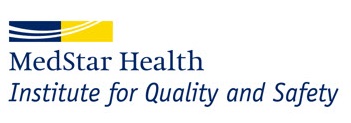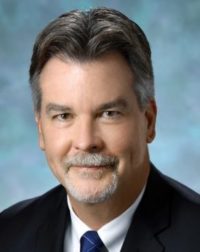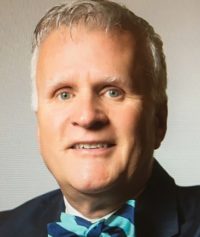Comprehensive Patient Safety Program Training Opportunities for Healthcare Leaders
Authored by: David Mayer, MD, Vice President Quality and Safety, MedStar Health
Comprehensive Patient Safety Program Leadership Training to Be Held March 27-30, 2018 in Tempe, AZ through the Academy for Emerging Leaders in Patient Safety Immersion Workshop
|
|
As healthcare leaders, we know that changing the culture of medicine, a discipline that has been in existence far longer than any corporate culture, is fraught with some of the most daunting obstacles. Reports and research continue to inform us that far too many patients continue to be unintentionally harmed by our care, yet willingness to adopt proven processes that can reduce risk and help lead our health systems to achieve the ultimate goal of zero preventable harm is still lacking.
It is the shortage of true change agent leadership combined with an understanding of the tools, techniques and behaviors needed for this shift that has impeded serious progress towards improved safety for both patients and the wonderful teams who care for them. |
The root cause is a lack of actionable knowledge and skills by well meaning individuals in domains such as:
- Leading for Change
- High Reliability
- Human Factors
- Coordinated Patient and Family Partnerships
- Transparency/Open, Honest Communication
- Disclosure and Rapid Remediation Models
- Care for the Caregiver
- Fair and Just Culture
- Systematic Development of an Institutional Patient Safety Curriculum
Creating a culture of safety first and foremost requires strong leadership, passionate about embedding the strategies, tools and techniques necessary to make it happen. The good news is that better ways to ensure the delivery of the safest, highest quality care are being developed every day—a new playbook that put patients and their families at the center of every process improvement or risk reduction activity.
For example, the AHRQ CANDOR Toolkit lays out a step-by-step approach to developing a patient-centered Communication and Resolution Program when harm occurs. The approach includes a care for the caregiver program, often forgotten casualties in the aftermath of patient harm. Those of us who live the challenge of caring for patients each day know that preventing harm from occurring in the first place is the optimal goal, and that is where high reliability, human factors, transparency and a fair and just culture come into to play – skills that prevent and also mitigate harm within a culture unafraid to learn from its mistakes.
Comprehensive training that helps grow change agent leaders continues to be hard to come by, and this is why I founded the Academy for Emerging Leaders in Patient Safety (AELPS): The Telluride Experience back in 2004. This journey to develop a patient safety curriculum began with a Roundtable of thought leaders, and our AELPS faculty still includes some of those same national patient advocates such as Helen Haskell, Rosemary Gibson, Carole Hemmelgarn, and Patty Skolnik and international patient safety leaders and educators such as Tim McDonald, MD, JD, John Nance, Anne Gunderson, EdD, and Gwen Sherwood, PhD. All our faculty have spent the last decade educating and developing healthcare leaders on the patient safety and quality improvement methodologies required for success in today’s healthcare environment.
The Academy for Emerging Leaders in Patient Safety Immersion Workshop is still a very unique meeting, much different than the medical meetings we all attend each year. Attendance in our workshops is limited to about 25 attendees allowing for a true small group, interactive learning format. Additionally, faculty is present for the entire workshop – they do not fly in, do their lecture, and then head back to the airport. Faculty and attendees not only learn together throughout the week, but also continue the discussions over meals and drinks well into the evenings.
|
|
“Attendees have expressed one of the best things about these workshops are the take home tools and ‘playbook’ we send home with them. This is a knowledge and skills transfer and a confidence boost for attendees, and they are able to apply and implement real change immediately once returning to their home institutions.” – Tim McDonald, MD, JD, Director, Center for Open, Honest Communication, MedStar Institute for Quality & Safety |
Past attendees of the AELPS Healthcare Leader Patient Safety Immersion Workshops couldn’t agree more, and their comments echo both the need and testimonial to the small group format we have designed to get at the heart of this work.
“This is by far the BEST conference I have ever attended. The small intimate setting is unique. I have learned so much. Thank you!” said one Safety Officer and Emergency Manager.
“Every aspect of this experience was very positive and relevant to what I struggle with at my organization,” said a Patient Safety Officer.
“This was wonderful! I was really surprised at the emotions elicited this week but it is such a deep hitting issue. I look forward to bringing these ideas and tools back to my program,” reported one Physician leader.
The next AELPS Patient Safety Immersion Workshop for Healthcare Leaders will be held March 27-30, 2018 at the Mission Palms Hotel in Tempe, AZ. For more information or to register, click here.
For more information on the work being done at the MedStar Institute for Quality and Safety to change the culture of medicine, click here.
 |
 |


